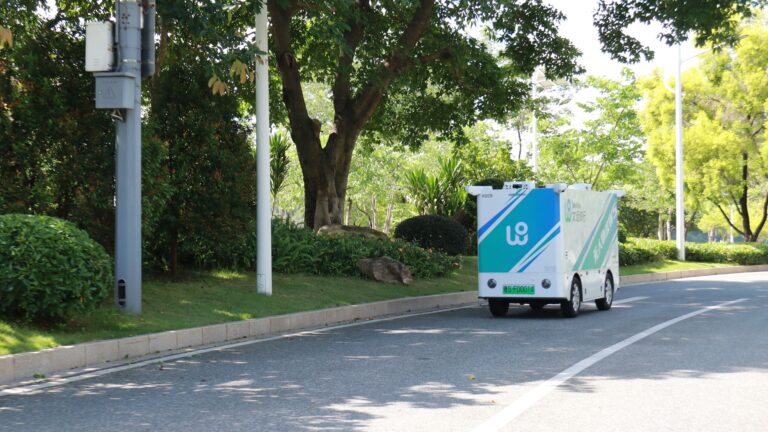WeRide has become the first company authorized to road test autonomous logistics vehicles in Huangpu, Guangzhou, after securing the district’s inaugural permit for its Robovan W5.
This marks the Robovan W5’s second active road testing permit, following an earlier approval in Guangzhou’s Nansha District in April.
On June 6, Guangzhou Development District and Huangpu District jointly introduced a strategic policy framework to accelerate the development of intelligent connected and new energy vehicles. The framework outlines plans to support large-scale deployment of autonomous technologies across sectors such as ride hailing, sanitation and smart logistics. WeRide has received approval to begin full-area testing of its Robovan W5 in Huangpu.
The Robovan W5 has been purpose-built for high-frequency urban logistics. It offers a cargo volume of 5.5m³, a maximum payload of 1,000kg and a driving range of up to 220km. Its modular cargo compartments support various slot configurations, making it adaptable to diverse use cases such as express delivery, neighborhood drop-offs and personalized point-to-point logistics.
Safety remains a top priority. Equipped with industry-leading Level 4 autonomous driving technology and WeRide’s proprietary redundant sensor suite, the Robovan W5 can detect vehicles, traffic signals, pedestrians and other road users, maintaining 360-degree awareness in all weather and lighting conditions year-round. It also features a redundant drive-by-wire chassis, emergency braking and collision warning systems, real-time driving status monitoring and a cloud-based control platform to ensure robust and reliable safety during each delivery.
In related news, Singapore’s acting minister for transport, Jeffrey Siow, visited WeRide’s headquarters in Guangzhou on June 29 to underscore the country and company’s cooperation on autonomous mobility and announce that Singapore will deploy autonomous vehicles in public housing estates by the end of 2025, integrating them into the national public transportation network.


